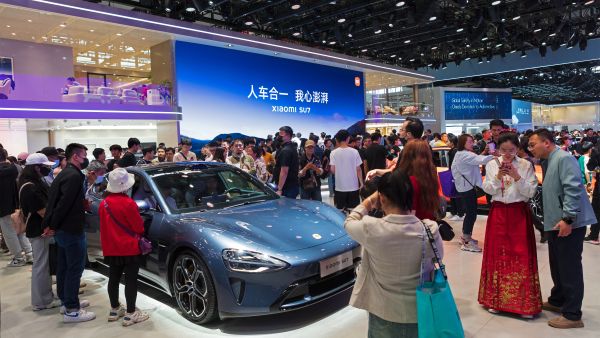ALBAWABA - The European Commission said that, as of July, it would apply additional taxes of up to 38.1 percent on Chinese electric vehicles imported, according to Reuters, as Chinese manufacturers face declining costs and weakening demand.
Brussels said that it will oppose unwanted subsidies with extra tariffs that will range from 17.4 percent for BYD to 38.1 percent for SAIC on top of the regular 10 percent auto duty, translating to billions of Euros for the already struggling Chinese EV makers, shortly after Washington revealed intentions to increase taxes for Chinese electric vehicles by four folds less than a month ago.
According to Andrew Kenningham, chief Europe economist at Capital Economics, the decision made by the European Union indicates a significant shift in the Union's trade policy, as while the EU often used trade defenses against China, it hadn't previously done so for such a significant sector.
The additional levies come after a nine-month examination into allegedly unfair state subsidies for Chinese battery electric cars. Chinese manufacturers have until July 4 to provide proof in order to refute the EU's conclusions, according to The Guardian, after which rates may be changed.
China-manufactured automobiles reportedly took up 25 percent of the EU market in 2023, up from 3.9% in the previous year, undercutting competing European automakers and slowing the EU's shift from internal combustion engines (ICE), which the EU intends to phase out by 2035, to battery-electric vehicles (BEVs).
China's foreign ministry spokesperson responded, according to BBC, by saying the new tariffs could damage the “China-EU economic and trade co-operation and the stability of the global automobile production and supply chain,” with Volker Wissing, Germany's minister of transportation saying the decision might spark a "trade war" with Beijing.








